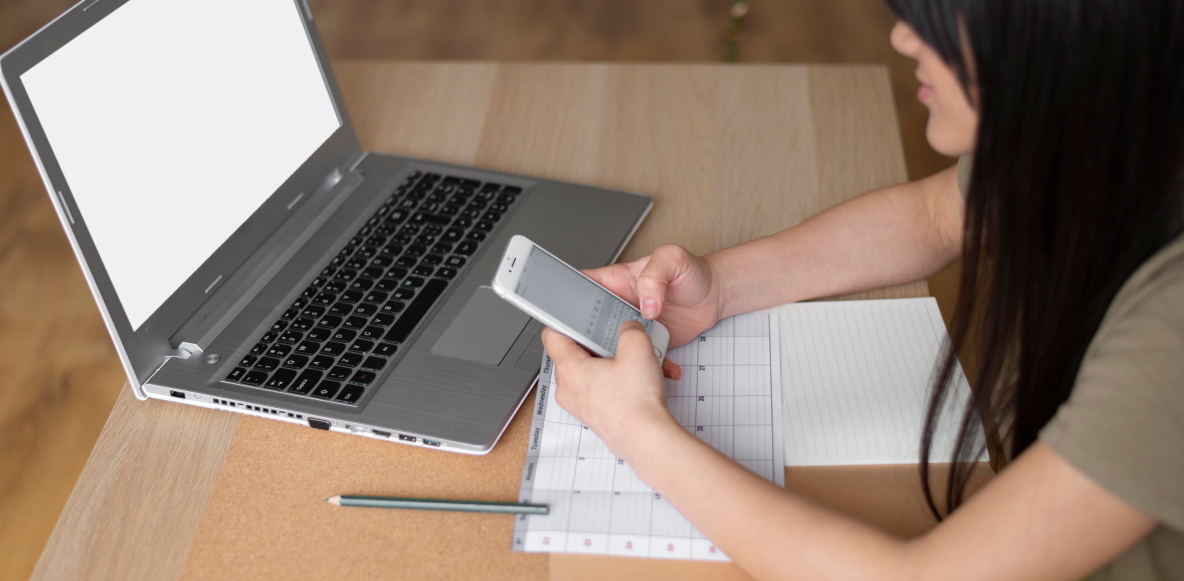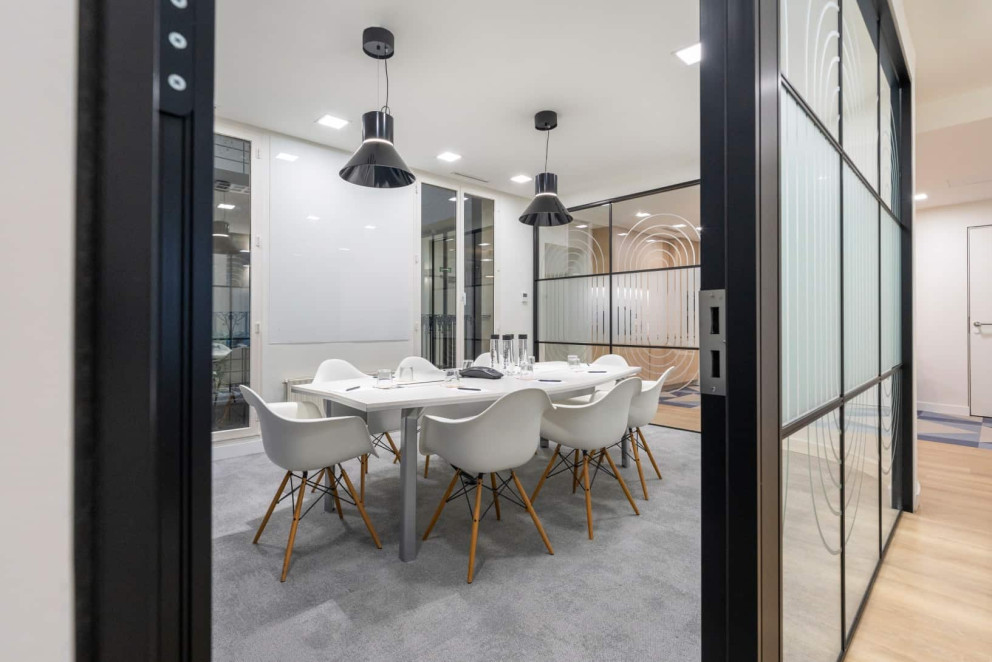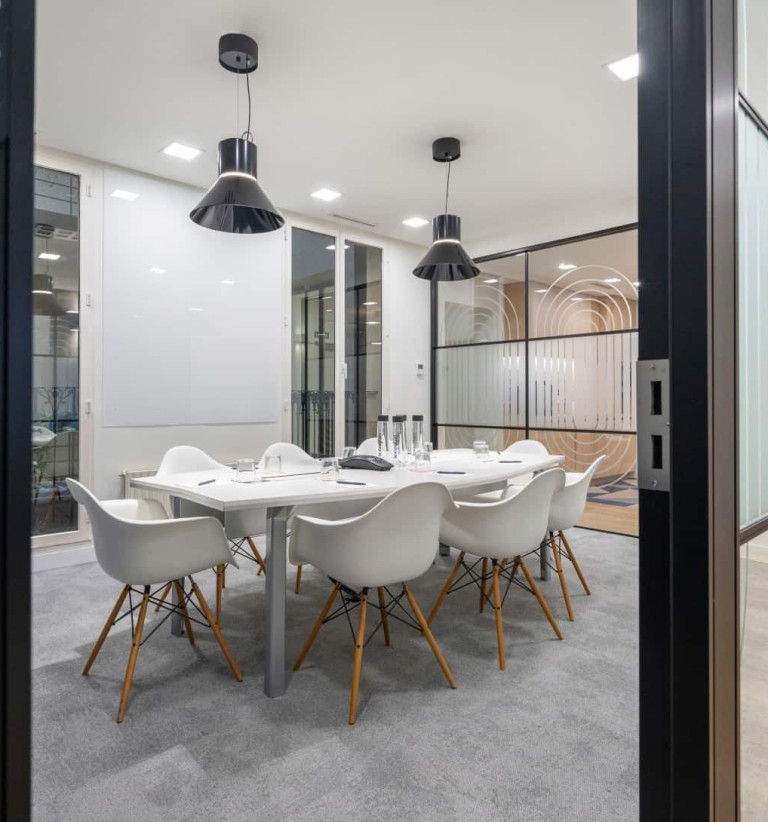The challenge of concentrating in the digital age 🙇🏻
- Discover ten practical tips to improve concentration at work and reduce daily distractions.
- Learn different organization and time management techniques, such as the
- Pomodoro method or time blocking, to boost productivity.
- We highlight the importance of taking care of your body, getting enough rest, and working in a suitable environment to maintain a good level of focus.
The world we are living in is everyday more connected to the technologies, regarding this we can gain access to all the information we want looking up on internet.This easy access to the technologies can make the levels of concentration at work very challenging. Calls, messages, e mails and a lot of communications are interrupting us and making our mind disperse for a few seconds.
“Concentration is a factor closely linked to productivity “
Some people get to come back to their tasks at work very easy after the interruptions. Others are able to not lose the attention. In any case during the 8 hours journey is very easy that your concentration becomes lower.
Si has arribat fins aquí és perquè saps que mantenir un nivell de concentració més elevat t’ajudaria a millorar la teva productivitat. Para atenció a les 10 tècniques efectives per concentrar-te a la feina que t’ajudaran a mantenir el focus i l’equilibri durant la jornada laboral.
10 effective techniques to help you concentrate at work
1. Focus on the present
Lack of concentration often stems from work-related stress or an overloaded mind. To break that cycle, learn to stay in the here and now. A simple way to do this is by practicing Mindfulness: spend 60 seconds observing your breathing without trying to change it. If your mind drifts, refocus. With daily practice, you’ll train your brain to sustain attention and reduce anxiety.
2. Plan your day methodically
Organization is the foundation of concentration. Start each day by reviewing your to-dos and prioritizing them by importance and urgency. You can apply techniques such as:
- Eisenhower Method: divide tasks between urgent/important to decide what to do, delegate, or eliminate.
- Time blocking: assign specific time blocks to each type of task (for example, checking emails only at 10:00 and 16:00).
- Weekly planning: spend 15 minutes at the beginning of the week defining clear and achievable goals.
3. Use the Pomodoro technique
One of the most effective strategies for staying focused is the Pomodoro technique: work in 25-minute intervals of full concentration followed by 5-minute breaks. After four cycles, take a longer break of 15 to 30 minutes. This structure prevents mental fatigue and maintains productivity throughout the day.
4. Minimize digital distractions
Notifications are the number one enemy of focus. A few simple actions can make a big difference:
- Silence mobile and email notifications while working on important tasks.
- Use distraction-blocking tools like Freedom, Cold Turkey, or Forest.
- Set specific times of day to check email or internal networks.
👉🏼 Remember: every interruption can take up to 20 minutes to regain your previous level of focus.
5. Create a favorable work environment
The environment directly affects concentration. Make sure your workspace is organized, ergonomic, and well-lit. If you work in shared offices or coworking spaces, look for quiet areas for tasks that require high attention.
At Lexington we offer modern and flexible spaces that adapt to your needs: from quiet areas for focused work to collaborative zones for meetings.
6. Take microbreaks
The brain needs regular breaks to perform at its best. Every hour, take 5 minutes to disconnect: stretch, walk around, or chat with a colleague. These short breaks reduce eye strain, prevent stress, and boost creativity.
7. Use small physical stimuli
Having a small object on your desk, like a stress ball or pencil, can help release tension and keep your mind active. These small stimuli act as mental release valves, especially during long calls or meetings.
8. Train your mind
Just like your body, attention can be trained. Spend a few minutes a day on exercises that stimulate memory and concentration, such as logic games, uninterrupted reading, or listening to instrumental music while you work. Over time, you’ll notice improvements in your focus and your ability to manage external noise.
9. Take care of your body to take care of your mind
Focus doesn’t end when you turn off your computer. Your habits outside of work also matter: exercise regularly, sleep at least 7 hours, and eat well. Walking outdoors or practicing yoga helps recharge mental energy and face the next day with greater clarity.
10. Disconnect to reconnect
Avoid checking emails outside of work hours and make time for real leisure. Your brain needs time to rest and process information. When you clearly separate work and rest times, your productivity naturally improves.
Additional resources to improve concentration
If you’re looking for more tools to learn how to focus at work, books and techniques endorsed by doctors and professionals are excellent allies. For example, Deep Work by Cal Newport highlights practical strategies to eliminate distractions and maximize focus. You can also explore books like Mindfulness for Beginners by Jon Kabat-Zinn, which offers simple exercises to stay present and reduce stress—one of the main enemies of concentration at work.
Experts in neuroscience and psychology also recommend specific techniques to improve attention, such as training the mind with cognitive exercises (for example, memory games) and practicing deep breathing to calm the mind before starting complex tasks.
For those seeking more practical resources, publications in magazines such as Psychology Today or Harvard Business Review offer tips for staying focused at work, including strategies for organizing your day and minimizing distractions.
Work in a suitable environment
Working in the right space is key to maintaining concentration. At Lexington, we offer flexible, modern, and ergonomic environments that adapt to your needs—whether it’s a quiet space to focus or collaborative areas for meetings—ensuring optimal performance. Learn more about our work model and take a look at our coworking spaces in Madrid and Barcelona. Get more information by filling out the form below! ✨











